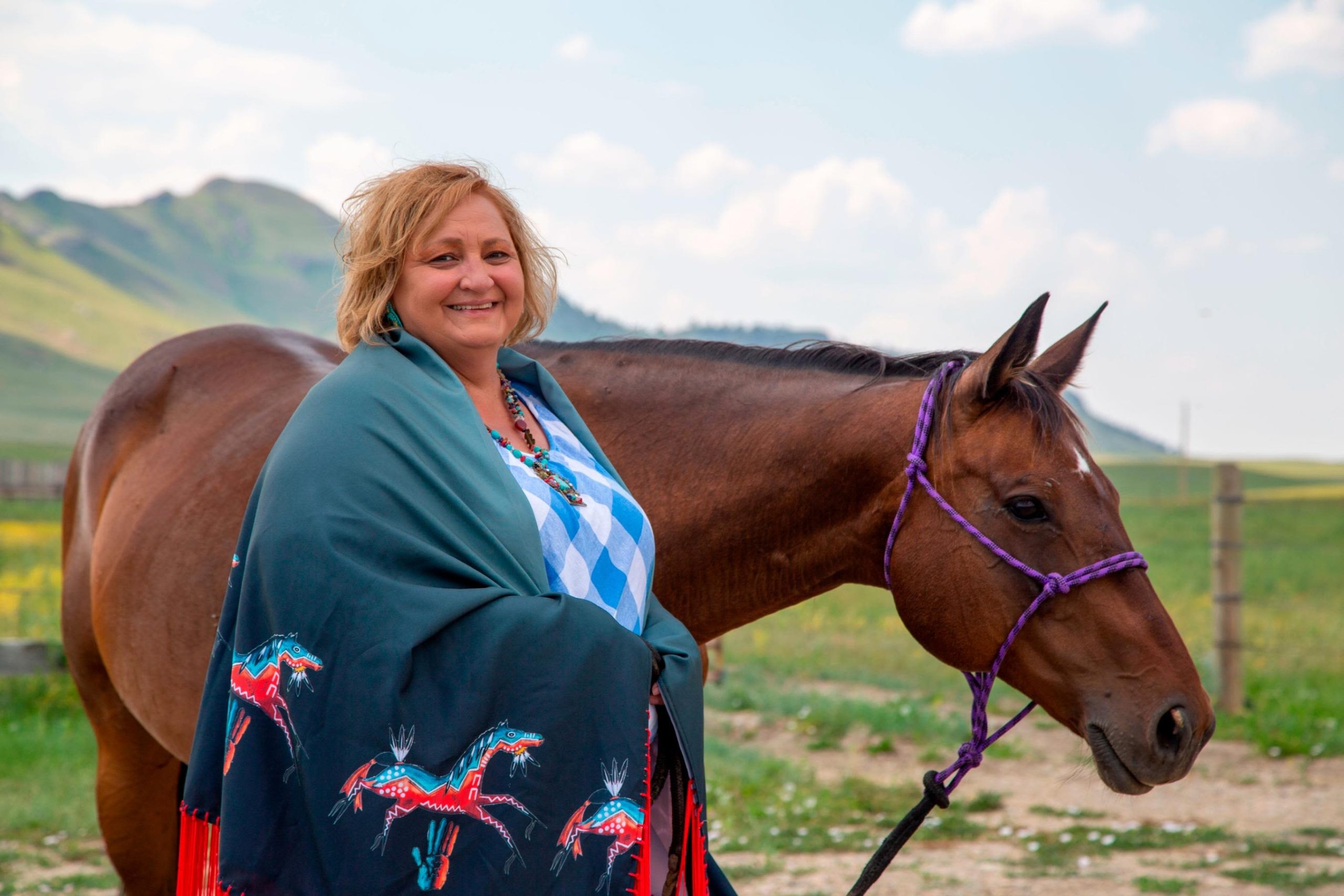Podcast: Play in new window | Download | Embed
Interior Secretary Deb Haaland told tribal leaders Wednesday morning that President Joe Biden and his administration are committed to investing in tribes and strengthening nation-to-nation relationships.
Joining virtually after testing positive for COVID, Sec. Haaland addressed leaders virtually in remarks at the 2023 White House Tribal Nations Summit.
Sec. Haaland says some of their accomplishments are protecting cultural resources, working to address decades of federal underfunding to tribes, water infrastructure investments, and investigating Indian boarding schools.
“This is our third year in office, and now things look very different. Because we’ve taken your words and feedback and put them into action. Throughout this administration, our work is guided by Indian country, for Indian country, Because representation matters.”
Leaders in attendance, like All Pueblo Council of Governors Chairman Mark Mitchell from New Mexico, says tribal leaders are holding the administration accountable.
“Making sure… the federal government by way of the President, we hold him to his words from last year. We want to hear what type of, or how the report is for this year from last year. It’s imperative that the leadership here that we do have that government to government relationship.”
Chairman Mitchell was among a handful of tribal leaders who met with President Biden privately moments before the president delivered his remarks.
President Biden announced and signed an executive order, which he says affirms tribal self-governance and cuts “red tape” when it comes to federal funding.
“It requires federal agencies to streamline grant applications, to co-manage federal programs, to eliminate heavy handed reporter requirements that gives Tribes more autonomy to make your own decisions. Not to mention, it’s more efficient.”
Brandon Yellowbird-Stevens, Vice Chair of the Oneida Nation of Wisconsin, hopes the order will streamline the process.
“Many tribes, doesn’t even matter if you’re small or large and have the infrastructure, it becomes cumbersome. Managing the grants, the strings attached, the reporting – and many times, tribes just don’t have the capacity to seek out the grants. And when they do, they need extensions, they need to forward the funding, and what not. And what this executive order hopefully fulfills is more ability and autonomy for tribes to utilize the funding, take it how we need it, and utilize it at the rate we need to.”
The order also creates a clearing house for tribes to find federal funds.
The White House Tribal Leaders Summit continues Thursday at the Interior Department.
Watch Summit Session One
Watch Summit Session Two

Courtesy Alaska Public Media
Southeast Alaska is mourning the loss of a Haida elder from Craig, who died at the age of 102.
The Tlingit and Haida Central Council shared the news of Fred Hamilton Sr.’s passing by saying “he has walked out into the forest.”
Hamilton was of the Raven moiety and Owl, Brown Bear, and Flicker crests.
The council says the elder, who was born in 1921 and the middle of nine children, was the oldest known living Haida.
Whether it was serving on school boards or city councils, or as a volunteer fighter and a timekeeper at school basketball games, volunteering was important to Hamilton.
At his 100th birthday celebration, he gave this advice: “Be friendly, help others and to not dwell on bad things that may happen in life.”
Get National Native News delivered to your inbox daily. Sign up for our newsletter today.
 Frybread Face and Me is a new feature film out now on
Frybread Face and Me is a new feature film out now on 

 Secretary of the Interior Deb Haaland says her agency is continuing work on missing and murdered Indigenous people.
Secretary of the Interior Deb Haaland says her agency is continuing work on missing and murdered Indigenous people.




 “Over the last decade, the Elk River is contributing 95% of the selenium into Koocanusa from those two sources.”
“Over the last decade, the Elk River is contributing 95% of the selenium into Koocanusa from those two sources.” The House Natural Resources Committee will host a roundtable titled “Strengthening Historic and Cultural Preservation.”
The House Natural Resources Committee will host a roundtable titled “Strengthening Historic and Cultural Preservation.”

 The state of Oregon recently announced its first Tribal Affairs Director.
The state of Oregon recently announced its first Tribal Affairs Director.
